January 8, 2016 •
Montana Contribution Limits Increase Adjustment
On January 9, a $10 increase in contribution limits for certain candidates becomes effective in the state of Montana. Pursuant to state statute, the Office of the Commissioner of Political Practices, adjusting contribution limitations to reflect the consumer price index, […]
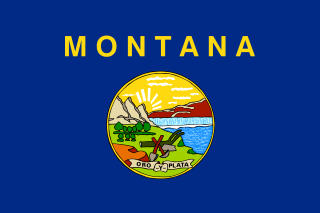 On January 9, a $10 increase in contribution limits for certain candidates becomes effective in the state of Montana.
On January 9, a $10 increase in contribution limits for certain candidates becomes effective in the state of Montana.
Pursuant to state statute, the Office of the Commissioner of Political Practices, adjusting contribution limitations to reflect the consumer price index, has raised the contribution limit for candidates for the governor and lieutenant governor from $650 to $660. Candidates for statewide office may now accept $330, up from $320. The contribution limit of $170 remains the same for all other public offices, including state Senate and state House. Montana’s contribution limits continue to be contested in the court challenge of Lair v. Bullock, which argues the state’s political contribution limits are unconstitutionally low.
December 21, 2015 •
Austin, TX to Reform City Lobbying and Campaign Finance Laws
On December 17, the Austin, Texas City Council voted to reform the city’s lobbying and campaign finance laws. The council approved a lobbyist reform proposal, which includes initiating changes to city ordinances relating to the regulation of lobbyists and to […]
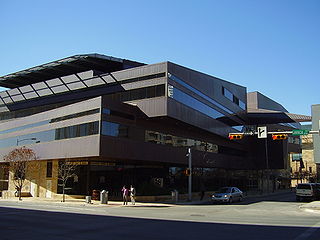 On December 17, the Austin, Texas City Council voted to reform the city’s lobbying and campaign finance laws.
On December 17, the Austin, Texas City Council voted to reform the city’s lobbying and campaign finance laws.
The council approved a lobbyist reform proposal, which includes initiating changes to city ordinances relating to the regulation of lobbyists and to the duties and functions of the Ethics Review Commission. The council also approved a resolution regarding mandating disclosure of campaign contributions and expenditures by non-profits and other entities not currently required to disclose their funding. The city manager has been directed by the council to write these ordinances, which will then be put to a vote by the council sometime in 2016.
December 10, 2015 •
Wichita City Council Votes to Allow Contributions by Corporations
The Wichita, Kansas City Council approved a measure removing the prohibition on corporations, unions, and political action committees donating to local campaigns. Such groups are still limited to contributions of $500 per election, matching the limit on individual contributions and […]
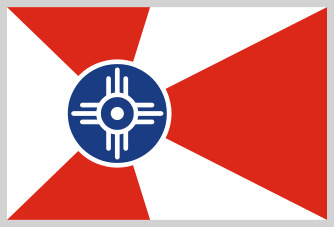 The Wichita, Kansas City Council approved a measure removing the prohibition on corporations, unions, and political action committees donating to local campaigns. Such groups are still limited to contributions of $500 per election, matching the limit on individual contributions and mirroring the state’s restrictions.
The Wichita, Kansas City Council approved a measure removing the prohibition on corporations, unions, and political action committees donating to local campaigns. Such groups are still limited to contributions of $500 per election, matching the limit on individual contributions and mirroring the state’s restrictions.
Proponents of the change believe with the limit so low, the risk of corporations or PACs swaying an election is minimal.
The council also voted unanimously to move city elections from the spring to the fall beginning in 2017.
September 25, 2015 •
Los Angeles Councilman Looking to Ban Businesses, Union, and Group Contributions
City Councilman David Ryu is working to keep his campaign promise of shaking up the status quo at city hall. He has sent a letter to the city Ethics Commission requesting they look into the possibility of banning contributions to […]
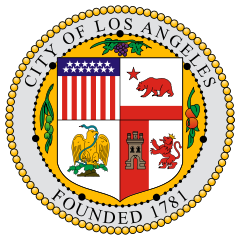 City Councilman David Ryu is working to keep his campaign promise of shaking up the status quo at city hall.
City Councilman David Ryu is working to keep his campaign promise of shaking up the status quo at city hall.
He has sent a letter to the city Ethics Commission requesting they look into the possibility of banning contributions to candidates by businesses, labor unions, and other groups.
He had planned to introduce legislation to accomplish this change; however, when no other council member would sign onto the legislation, Ryu turned to the Ethics Commission, asking them to explore ways to achieve such a ban.
While reform groups support such a ban, critics of the proposal fear it will lead to legal challenges and drive more money to independent expenditure groups.
July 23, 2015 •
Lawsuit Filed Challenging New York’s ‘LLC Loophole’
The Brennan Center for Justice, on behalf of several New York lawmakers, filed suit against the New York State Board of Elections, challenging a 1996 board ruling that treats limited liability companies (LLCs) as individuals. The ruling has the result […]
 The Brennan Center for Justice, on behalf of several New York lawmakers, filed suit against the New York State Board of Elections, challenging a 1996 board ruling that treats limited liability companies (LLCs) as individuals. The ruling has the result of creating a loophole allowing LLCs to circumvent stricter contribution limits imposed upon other business entities, namely partnerships and corporations.
The Brennan Center for Justice, on behalf of several New York lawmakers, filed suit against the New York State Board of Elections, challenging a 1996 board ruling that treats limited liability companies (LLCs) as individuals. The ruling has the result of creating a loophole allowing LLCs to circumvent stricter contribution limits imposed upon other business entities, namely partnerships and corporations.
The board had an opportunity to overturn its 1996 ruling at its April 2015 board meeting, but board members split along party lines to uphold the ruling, thus prompting the Brennan Center for Justice to file suit.
Plaintiffs allege the LLC loophole allows special interest groups to funnel tens of millions of dollars into political campaigns without transparency. Corporate contributions are limited to $5,000 per calendar year; partnerships are limited to $2,500 per calendar year at the partnership entity level. Under the 1996 board ruling, LLCs can contribute substantially more than other business entities because they are treated as individuals.
The lawsuit was filed in the Supreme Court of New York, County of Albany.
June 25, 2015 •
Alberta New Democratic Party Passes Bill Banning Corporate and Union Donations to Political Parties
Corporations and labor unions will no longer be permitted to donate to political parties in Alberta. Bill 1 passed its third reading on Monday, June 22, and when signed into law, will be retroactively effective to June 15, the day […]
 Corporations and labor unions will no longer be permitted to donate to political parties in Alberta. Bill 1 passed its third reading on Monday, June 22, and when signed into law, will be retroactively effective to June 15, the day the bill was introduced in the house.
Corporations and labor unions will no longer be permitted to donate to political parties in Alberta. Bill 1 passed its third reading on Monday, June 22, and when signed into law, will be retroactively effective to June 15, the day the bill was introduced in the house.
Proponents of the bill agree it puts power back in the hands of citizens rather than the entities with the deepest pockets. Critics, however, argue the bill has serious loopholes as it does not address the abilities of companies and unions to guarantee loans to parties or to donate services.
June 25, 2015 •
Thursday News Roundup
Lobbying Hawaii: “Former Lobbyist Who Wined and Dined Council Members Now Vice Chair of Key Panel” by Keoki Kerr for Hawaii News Now Nebraska: “Common Cause Complaint against Former Senator Dismissed” by Joanne Young for Lincoln Journal Star Campaign Finance […]
 Lobbying
Lobbying
Hawaii: “Former Lobbyist Who Wined and Dined Council Members Now Vice Chair of Key Panel” by Keoki Kerr for Hawaii News Now
Nebraska: “Common Cause Complaint against Former Senator Dismissed” by Joanne Young for Lincoln Journal Star
Campaign Finance
“This Chart Seemingly Proves How Wrong I Am about Money in Politics” by Chris Cillizza for Washington Post
“Cannabis Industry Flexes Its New Political Muscle” by Conrad Wilson for Oregon Public Broadcasting
Ethics
“Calls to Drop Confederate Emblems Spread Nationwide” by Campbell Robertson, Monica Davey, and Julie Bosman for New York Times
California: “Lawmakers’ Calendars List Meetings with Undercover Agents” by Judy Lin (Associated Press) for San Diego Union Tribune
Kentucky: “Kentucky Legislature Resolves Sexual Harassment Lawsuit” by Adam Beam (Associated Press) for Lexington Herald-Leader
Elections
“Bobby Jindal Announces Entry into 2016 Presidential Race” by David Fahrenthold and James Hohmann for Washington Post
“Democratic Super PAC to Take on Koch Brothers” by Maggie Haberman for New York Times
Gov. Peter Shumlin has signed Senate Bill 93, changing lobbyist reporting requirements. Reports must now be filed for each month the legislature is in session with an additional report in September. The new law also requires identification of lobbyists contributing […]
 Gov. Peter Shumlin has signed Senate Bill 93, changing lobbyist reporting requirements. Reports must now be filed for each month the legislature is in session with an additional report in September.
Gov. Peter Shumlin has signed Senate Bill 93, changing lobbyist reporting requirements. Reports must now be filed for each month the legislature is in session with an additional report in September.
The new law also requires identification of lobbyists contributing to advertisements meant to influence legislation and a report must be filed within 48 hours if such advertisement cost $1,000 or more. Furthermore, a legislator’s candidate committee and a legislative leadership committee may no longer solicit or accept a contribution while the legislature is in session.
These provision are effective July 1, 2015.
April 17, 2015 •
Maryland Contractor Contribution Disclosure Rules to Change Again
Gov. Larry Hogan is expected to sign a new political contribution disclosure law covering government contractors. House Bill 769 makes significant changes to the law just months after the January 1 effective date of amendments passed in the prior legislative […]
 Gov. Larry Hogan is expected to sign a new political contribution disclosure law covering government contractors. House Bill 769 makes significant changes to the law just months after the January 1 effective date of amendments passed in the prior legislative session. In fact, many of the bill’s provisions were prompted by questions regarding the most recent version of the law.
Gov. Larry Hogan is expected to sign a new political contribution disclosure law covering government contractors. House Bill 769 makes significant changes to the law just months after the January 1 effective date of amendments passed in the prior legislative session. In fact, many of the bill’s provisions were prompted by questions regarding the most recent version of the law.
The new amendments clarify that a single qualifying contract of $200,000 or more with a state or local governmental entity is covered by the disclosure law, whether awarded before or after January 1, 2015. The bill also changes semi-annual reporting dates to May 31 and November 30.
Since the bill goes into effect June 1, 2015, this year’s dates have been modified to August 31 and November 30. Previously, reports were due on February 5 and August 5.
April 10, 2015 •
North Dakota Democrats File FEC Complaint Over Foreign Contributions
Grand Fork Democrats in District 43 have filed a complaint with the Federal Election Commission (FEC) against state Republican officials and a political action committee (PAC) for receiving foreign campaign contributions. Gov. Jack Dalrymple, state Sen. Lonnie Laffen, and the […]
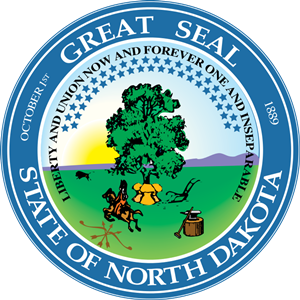 Grand Fork Democrats in District 43 have filed a complaint with the Federal Election Commission (FEC) against state Republican officials and a political action committee (PAC) for receiving foreign campaign contributions. Gov. Jack Dalrymple, state Sen. Lonnie Laffen, and the ND Oil PAC each reported receiving contributions from individuals with Canadian and/or United Kingdom addresses.
Grand Fork Democrats in District 43 have filed a complaint with the Federal Election Commission (FEC) against state Republican officials and a political action committee (PAC) for receiving foreign campaign contributions. Gov. Jack Dalrymple, state Sen. Lonnie Laffen, and the ND Oil PAC each reported receiving contributions from individuals with Canadian and/or United Kingdom addresses.
The complaint cites federal law and regulations prohibiting contributions from foreign nationals in federal, state, or local elections. North Dakota Secretary of State Al Jaeger has said he believes federal laws under the FEC apply to federal candidates, but do not apply to in-state, nonfederal candidates.
Democratic leaders also filed a request for an attorney general’s opinion on the interplay between federal and state law regarding foreign campaign contributions.
March 4, 2015 •
New Mexico Bill Would End Contribution Limits
Senate Majority Leader Michael Sanchez (D) is sponsoring a bill to eliminate the state’s campaign contribution limits. Senate Bill 689 repeals the 2009 law enacting the first-ever limits on how much candidates and committees can raise per election. Sanchez believes […]
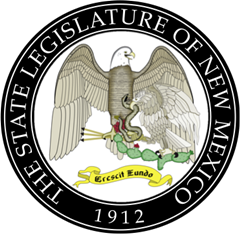 Senate Majority Leader Michael Sanchez (D) is sponsoring a bill to eliminate the state’s campaign contribution limits. Senate Bill 689 repeals the 2009 law enacting the first-ever limits on how much candidates and committees can raise per election.
Senate Majority Leader Michael Sanchez (D) is sponsoring a bill to eliminate the state’s campaign contribution limits. Senate Bill 689 repeals the 2009 law enacting the first-ever limits on how much candidates and committees can raise per election.
Sanchez believes the limits encourage big donors to funnel money to independent expenditure committees, resulting in less transparency.
The bill is currently pending in the Senate Rules Committee.
February 3, 2015 •
FEC Adjusts Federal Contribution Limits for the 2015-2016 Election Cycle
The Federal Election Commission (FEC) has published the 2015-2016 election cycle contribution limits, which have been indexed for inflation. As required by the Bipartisan Campaign Reform Act of 2002, the FEC must adjust certain contribution limits every two years. The […]
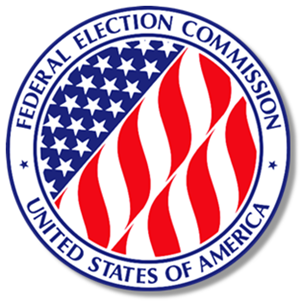 The Federal Election Commission (FEC) has published the 2015-2016 election cycle contribution limits, which have been indexed for inflation. As required by the Bipartisan Campaign Reform Act of 2002, the FEC must adjust certain contribution limits every two years.
The Federal Election Commission (FEC) has published the 2015-2016 election cycle contribution limits, which have been indexed for inflation. As required by the Bipartisan Campaign Reform Act of 2002, the FEC must adjust certain contribution limits every two years.
The individual and nonmulticandidate PAC contribution limit to federal candidates has increased from $2,600 to $2,700 for both primary and general elections, allowing for a total of $5,400 for a federal candidate.
The limits on contributions by individuals to national party committees has increased from $32,400 to $33,400 per calendar year. Individuals may now contribute $100,200 per calendar year to committees of a national political party for presidential nominating conventions, to committees of a national political party for preparation for and the conduct of election recounts and contests and other legal proceedings, and to committees of a national political party for the construction, purchase, renovation, operation, and furnishing of one or more buildings for party headquarters.
February 2, 2015 •
Ask the Experts – Indexing of Contribution Limits
Q. With the start of the New Year, are there any changes I should be aware of in political contribution limits? A. Aside from changes as a result of new legislation, the most common adjustment of contribution limits is indexing […]

Q. With the start of the New Year, are there any changes I should be aware of in political contribution limits?
A. Aside from changes as a result of new legislation, the most common adjustment of contribution limits is indexing for inflation. Typically, adjustments are made biennially for inflation according to the Consumer Price Index. The Consumer Price Index is calculated by the United States Department of Labor, Bureau of Labor Statistics.
This concept was addressed by the United States Supreme Court in Buckley v. Valeo (1976). The court allowed federal contribution limits to be adjusted upwards at the beginning of each calendar year by the average percentage rise in the Consumer Price Index for the 12 preceding months.
The principal behind this is quite simple: it is based on the recognition that the cost of campaigning steadily increases each year based on the increase to cost of living. Campaign fliers, mailers, yard signs, and media buys do not cost the same in 2013 as they do in 2015.
This year, California adjusted its contribution limits for the 2015-2016 biennium. In doing so, corporate contributions limits for general assembly candidates increased from $4,100 per election to $4,200. Washington adjusts its limits in even-numbered years, so the 2014 corporate contribution limit of $950 per election for state legislative candidates will remain the same for 2015. Illinois adjusts its limits in odd-numbered years, so the 2014 corporate contribution limit of $10,500 per election cycle for legislative candidates will increase to $10,800.
Finally, the indexing of contribution limits usually results from amendments to a state’s administrative code as opposed to its statute. In order to ensure compliance, a contributor should review both of these sources.
You can directly submit questions for this feature, and we will select those most appropriate and answer them here. Send your questions to: experts@stateandfed.com.
(We are always available to answer questions from clients that are specific to your needs, and we encourage you to continue to call or e-mail us with questions about your particular company or organization. As always, we will confidentially and directly provide answers or information you need.) Our replies to your questions are not legal advice. Instead, these replies represent our analysis of laws, rules, and regulations.
November 19, 2014 •
Long Beach, California Council Votes to Roll Back Campaign Restrictions
City Council voted November 18 to remove portions of the city’s Campaign Reform Act. Ordinance 14-0926 allows candidates to deposit large contributions before obtaining donor information and to transfer contributions to other candidates. Both practices are currently allowed by the […]
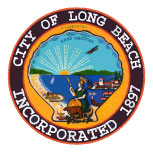 City Council voted November 18 to remove portions of the city’s Campaign Reform Act. Ordinance 14-0926 allows candidates to deposit large contributions before obtaining donor information and to transfer contributions to other candidates. Both practices are currently allowed by the state, but prohibited by city law.
City Council voted November 18 to remove portions of the city’s Campaign Reform Act. Ordinance 14-0926 allows candidates to deposit large contributions before obtaining donor information and to transfer contributions to other candidates. Both practices are currently allowed by the state, but prohibited by city law.
The ordinance would also adjust contribution limits on January 1 of odd numbered years, rounded to the nearest $100. Currently, limits are adjusted in even numbered years to the nearest $50.
The ordinance takes effect 31 days following approval by Mayor Robert Garcia.
State and Federal Communications, Inc. provides research and consulting services for government relations professionals on lobbying laws, procurement lobbying laws, political contribution laws in the United States and Canada. Learn more by visiting stateandfed.com.

